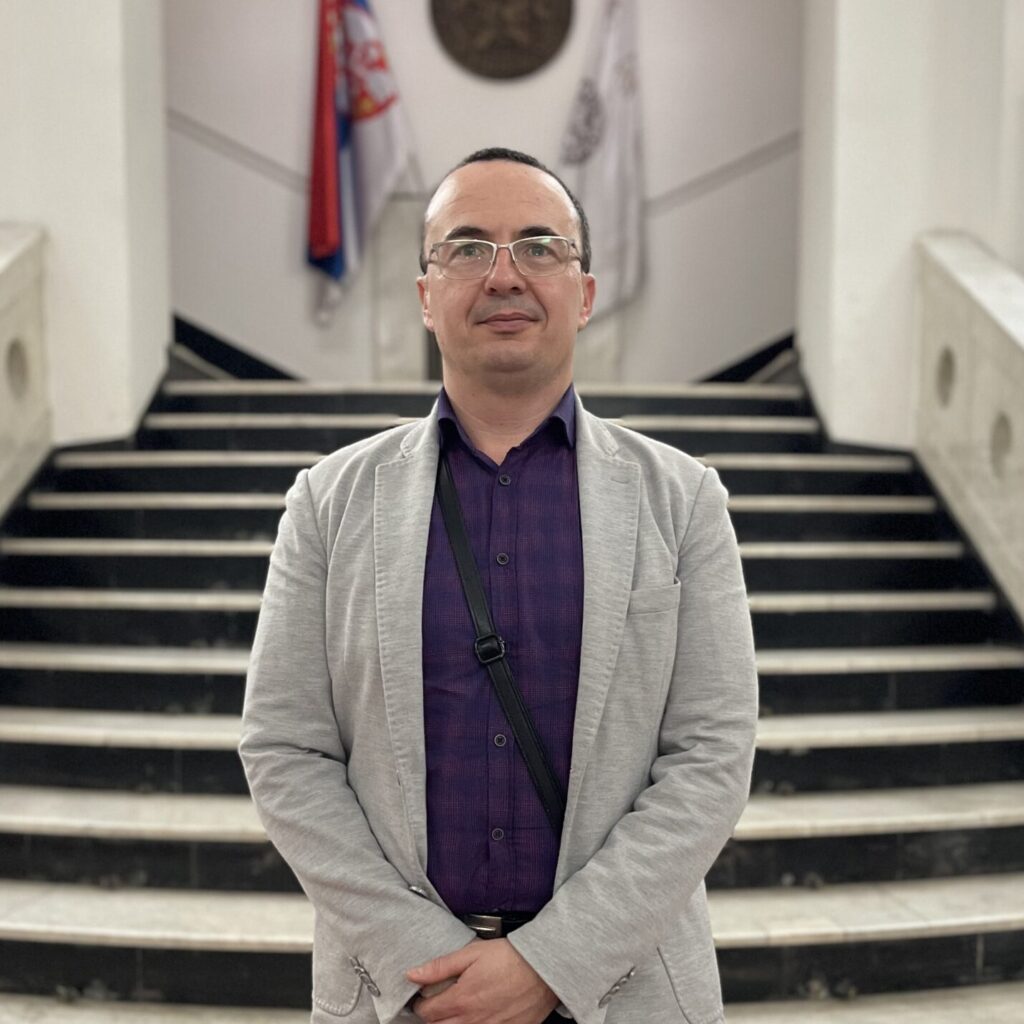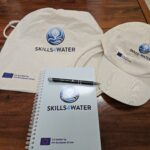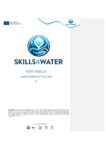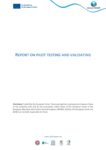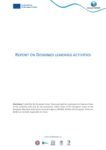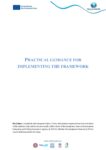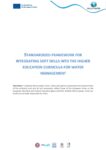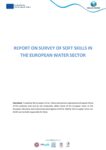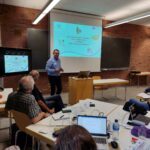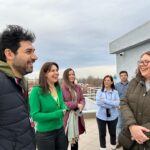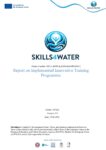Dejan Vasović from Serbia participates in the European Junior Water Programme (EJWP). His work primarily revolves around enhancing the quality of environmental education and implementing effective water resource management strategies. His commitment is deeply rooted in fostering local and international collaborations to tackle pressing water sector challenges and develop sustainable solutions.
What is your current work position?
“I am currently working as an associate professor at the University of Niš, Faculty of Occupational Safety, Department of Working and Environmental Quality Management. I am the head of the Water protection laboratory at the faculty as well as the Center for Technology Transfer member.”
Can you describe one of your workdays?
“My average working days consist of intensive work with students, in terms of the implementation of teaching activities (lectures, calculation and laboratory exercises), consultations and extracurricular activities of students (preparation of students for competitions, conferences, etc.). In addition, I spend a significant part of my time working with colleagues on joint research, as well as cooperation activities in international frameworks. No less important is my engagement in the form of cooperation with local administrations and other organizations in the field of environmental protection.”
What do you consider the most interesting part of your job?
“In my job, I found particularly interesting the possibility of cooperation with other colleagues and the transfer of knowledge at multiple levels, thereby jointly strengthening our overall capacities. In addition, the field I work in has a very socially responsible character, so I see contributing to the development of the local community and improving social well-being as an advantage of my job.”
What is a topic that you see as increasingly important in the water sector?
“In the water sector, it is impossible to avoid activities related to the strengthening of adaptation capacities to climate change, most often computer-supported, so I consider this area a priority. In addition, I recognize the standardization of climate change adaptation activities, whether in terms of urban resilience or, say, water footprint, as increasingly important.”
What do you expect from international cooperation?
“In the context of international cooperation, I have the highest expectations in the area of exchange of information and experiences of colleagues who deal with this issue, where, above all, I expect the possibility of comparing different methods, tools and techniques in the field of water sector and creating a mix of approaches that is most suitable for my environment.”
Why are you joining EJWP?
“I received positive recommendations for EJWP from colleagues who already had some cooperation with EJWP. As a proactive expert but also an enthusiast in the field of water sector, I believe that within this program I will have significant opportunities to learn about emergent challenges in the field of water and the possibility of solving them.“
What and where did you study?
“I completed my undergraduate, master’s and doctoral studies at my home university and faculty, predominantly in the field of environmental protection, specifically water resources. I am currently innovating my own knowledge and competences in the areas of public utilities, standardization and management of industrial emissions in the context of water resources protection.”


